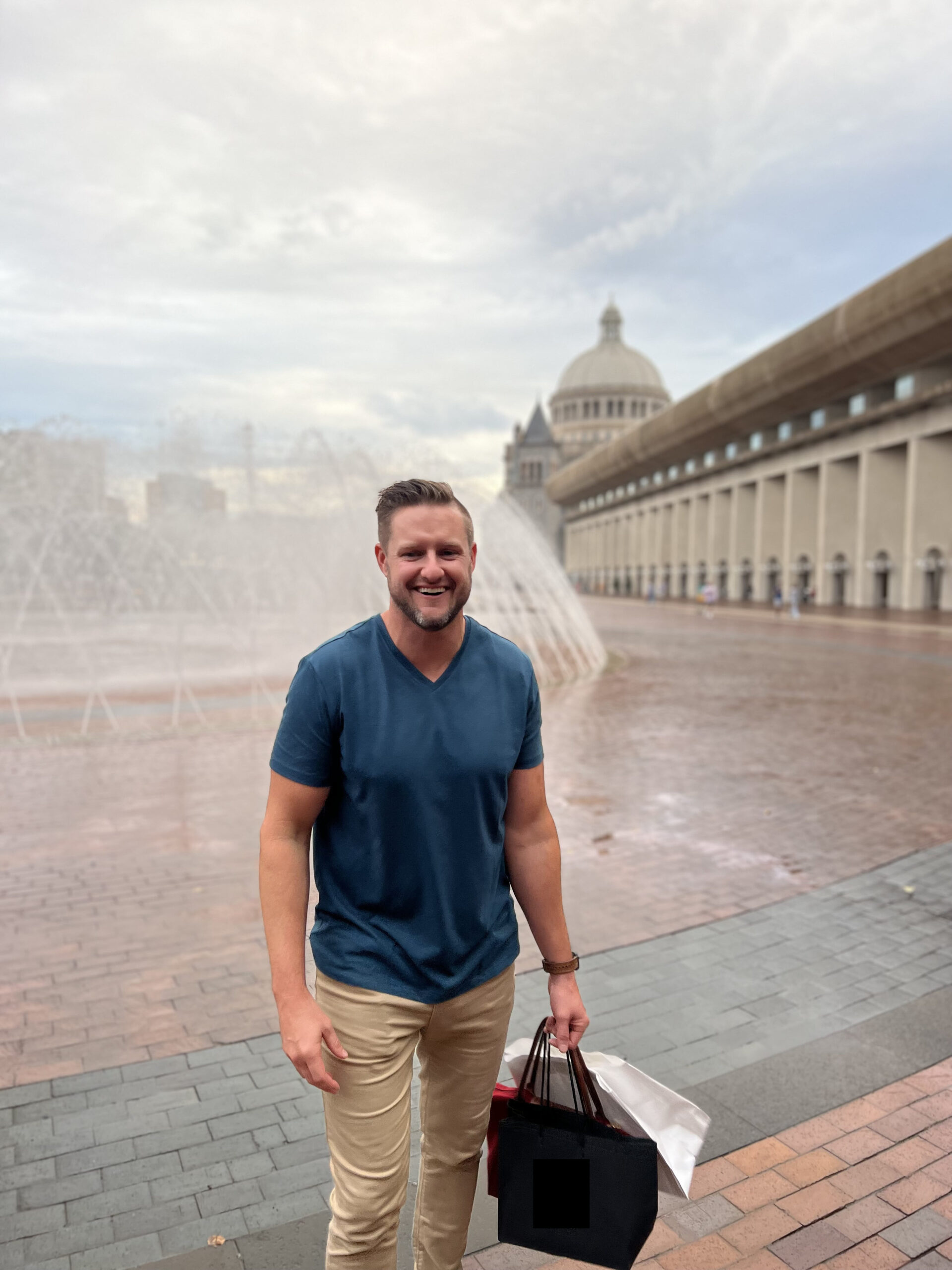The quest for mental wellness and care has led many people down various paths for health conditions, but few works as intriguing as psychedelic therapy. This method, once sidelined to the fringes of psychiatry, has seen a resurgence. Its roots stretch back to the mid-20th century when researchers first explored the therapeutic potential of substances like LSD and psilocybin. Fast forward to today, and there’s a global movement pushing for its legalization, driven by promising clinical trials that suggest these substances could revolutionize treatment for depression, PTSD, and more. However, the legal landscape is a patchwork of regulations that vary wildly from one region to another. In this post, we’ll navigate through the complex world of psychedelic therapy’s legality, shedding light on where these practices have been embraced within legal frameworks.
Key Takeaways
- Psychedelic therapy, while still emerging, is gaining legal status in various parts of the US and around the world, highlighting its potential as a significant mental health treatment.
- In the US, certain states have begun to decriminalize or legalize the use of psychedelics for therapeutic purposes, underscoring the importance of staying informed about local laws.
- Globally, countries vary widely in their approach to psychedelic therapy, with some pioneering research and treatment programs that could serve as models for other nations.
- Understanding the different types of psychedelic therapies available is crucial for those considering this form of treatment, as each has its own legal status, risks, and benefits.
- Access to legal psychedelic therapy requires careful navigation of existing laws and regulations, emphasizing the need for thorough research and consultation with professionals in the field.
- The future of psychedelic therapy appears promising, with ongoing research, personal success stories, and evolving legal landscapes pointing towards increased accessibility and acceptance.
Psychedelic Therapy Overview
Definition
Psychedelic therapy involves using substances like psilocybin, MDMA, and LSD to aid people’s mental health, guided by a task force. This approach has roots going back decades but saw a decline due to regulatory crackdowns. Recently, there’s been a resurgence of interest as new research highlights its potential benefits.
Each psychedelic serves different purposes in therapy. Psilocybin, found in certain mushrooms, is often used for depression and anxiety. MDMA is primarily used in the treatment of PTSD, while LSD can help people with various conditions, including alcoholism. These substances facilitate profound emotional and cognitive experiences that can lead to significant insights and emotional release for patients.
Benefits
One of the key advantages of psychedelic therapy is its ability to treat conditions resistant to traditional treatments. Patients with chronic depression, PTSD, and severe anxiety have shown remarkable improvements after sessions with psychedelics.
The therapy promotes emotional openness and increases neuroplasticity. This makes the brain more adaptable and capable of forming new neural connections. It’s this change that underpins many of the long-term benefits reported by patients, such as enhanced well-being and increased life satisfaction.
Research also suggests that these benefits are not fleeting. Many patients report sustained improvements in their mental health months or even years after their psychedelic experiences.
Risks
However, psychedelic therapy isn’t without its risks. Side effects can include nausea, heightened anxiety during sessions, and disorientation post-therapy. These underscore the importance of conducting sessions in controlled settings under professional supervision.
It’s crucial to undergo this therapy only within legal frameworks where safety protocols are strictly followed. The use of psychedelics outside therapeutic contexts carries significant legal and health risks. Self-administration without proper guidance may not only be illegal but can also result in adverse psychological outcomes.
Legal Landscape in the US
Federal Laws
At the federal level, psychedelics remain classified as Schedule I substances. This classification indicates a high potential for abuse and no recognized medical use. Despite this, there’s a growing movement to reevaluate certain psychedelics’ therapeutic potential.
Efforts are underway to reclassify psychedelics for medical purposes. These efforts gain momentum as more research highlights their potential benefits. However, a significant gap exists between federal laws and state-level initiatives seeking to explore psychedelic therapy’s possibilities.
State Initiatives
Several states have taken bold steps towards changing the legal status of psychedelic therapy. Oregon, Colorado, and California lead the charge, either passing bills or considering legislation to decriminalize or legalize psychedelic substances for therapeutic use.
In these states, psychedelic therapy is allowed under specific conditions such as through clinical trials or at licensed therapy centers. This marks a significant shift towards recognizing the therapeutic benefits of psychedelics.
Public support has been crucial in advancing these initiatives. Advocacy groups play a key role in educating the public and lawmakers about the potential benefits of psychedelic therapy.
Recent Changes
The legalization of psilocybin therapy in Oregon stands as a landmark legislative milestone. It signifies a shift in public perception and underscores scientific endorsement of psychedelic therapy’s benefits.
Recent years have seen an increase in significant research grants allocated to study psychedelics. This funding supports ongoing efforts to understand how these substances can be used safely and effectively in therapeutic settings.
Global Legal Perspectives
Progressive Countries
Portugal and the Netherlands stand out as pioneers in the legalization of psychedelic therapy. These nations have adopted forward-thinking policies that not only decriminalize the use of psychedelics but also promote their therapeutic potential. In Portugal, the decriminalization of all drugs in 2001 marked a significant shift towards treating drug use as a public health issue rather than a criminal one. This approach has paved the way for more open research and application of psychedelic therapy.
The Netherlands, known for its liberal drug policies, allows the use of psilocybin-containing truffles for therapeutic purposes. This legal stance has fostered a conducive environment for medical research, enabling scientists to explore the benefits of psychedelics in treating mental health disorders. Patient access to alternative therapies has significantly improved in these countries, offering hope to those who have not found relief through conventional treatments.
International collaborations and conferences on psychedelic therapy are becoming more common, highlighting the growing acceptance and interest in this field worldwide. These events serve as crucial platforms for sharing research findings, discussing ethical considerations, and shaping future policies.
Strict Regulations
Conversely, countries like Japan and Singapore maintain stringent anti-drug laws that severely restrict psychedelic research and therapy. In these nations, possession or use of psychedelics can lead to harsh penalties, including imprisonment. Such restrictive regulations pose significant challenges for researchers attempting to conduct clinical trials on the therapeutic potential of psychedelics. The scientific community faces obstacles in advancing our understanding of these substances due to legal constraints.
Notable cases of legal action against psychedelic therapy practitioners or participants underscore the risks involved in jurisdictions with strict drug laws. For example, individuals found participating in underground psychedelic therapy sessions may face legal repercussions, deterring both patients and therapists from exploring these treatments.
Comparing US and World
Legal Advancements
Recent years have seen significant legal advancements in the realm of psychedelic therapy, both in the United States and globally. In the U.S., Oregon made headlines by becoming the first state to legalize psilocybin therapy after a landmark vote in November 2020. This move paved the way for controlled use of psilocybin mushrooms under supervised conditions.
Internationally, countries like Portugal and the Netherlands have adopted more progressive drug policies that decriminalize the possession of small amounts of psychedelics. These changes reflect a growing recognition of the potential therapeutic benefits of substances like psilocybin, MDMA, and ayahuasca.
Behind these legal shifts are powerful advocacy groups such as MAPS (the Multidisciplinary Association for Psychedelic Studies). They’ve been instrumental in funding research and lobbying for policy reform. Their efforts highlight a global shift towards considering psychedelics as viable options for mental health treatment.
Challenges Ahead
Despite these advancements, challenges remain on the path to widespread legalization and acceptance of psychedelic therapy. One major hurdle is overcoming societal stigma associated with psychedelic drugs. For many, these substances are still linked to recreational use and counterculture movements of the past, overshadowing their therapeutic potential.
The need for standardized training and certification for therapists working with psychedelics is also pressing. As interest in psychedelic-assisted therapy grows, ensuring that practitioners are well-trained and certified becomes crucial for patient safety and efficacy of treatment.
Moreover, there’s a risk of misuse if guidelines for safe use aren’t clearly established. The therapeutic benefits of psychedelics hinge on controlled environments and professional oversight. Without these safeguards, the potential for harm increases, potentially setting back legalization efforts.
Types of Psychedelic Therapies
Psilocybin Therapy
Psilocybin therapy shows promise for those battling depression and anxiety, particularly in cases where traditional treatments have failed. The FDA has recognized its potential, awarding it breakthrough therapy designation twice, first in 2018 for treatment-resistant depression and again in 2019 for major depressive disorder. This status accelerates the development and review process for drugs that show substantial improvement over existing treatments.
A typical psilocybin session lasts between four to six hours. Patients consume psilocybin in a controlled environment, under the supervision of trained therapists. These sessions are often part of a longer treatment plan that includes preparatory meetings and follow-up integration sessions to process the experience.
MDMA-Assisted Therapy
MDMA, commonly known for its use in recreational settings, is gaining recognition for its therapeutic benefits, especially in treating post-traumatic stress disorder (PTSD). The FDA granted MDMA-assisted therapy breakthrough therapy designation in 2017, highlighting its significant advantage over current PTSD treatments.
The therapeutic framework for MDMA-assisted therapy involves several steps. Initially, patients undergo preparatory sessions without the drug to build trust with their therapist and prepare mentally for the experience. Following this, patients participate in one to three sessions with MDMA, spaced a month apart. Each session lasts approximately eight hours. Afterward, integration sessions help patients make sense of their experiences and incorporate any insights into their daily lives. Currently, Phase 3 clinical trials are underway, marking a critical step towards potential FDA approval and future legalization.
LSD and Beyond
LSD was widely used in psychotherapy during the 1950s and 60s but fell out of favor due to legal restrictions and changing societal attitudes towards psychedelics. Today, researchers are revisiting LSD’s potential to treat various conditions like anxiety associated with life-threatening diseases and certain types of addiction.
Beyond LSD, other psychedelics like DMT (found in ayahuasca) and ibogaine are being explored for their therapeutic potential. DMT is being studied for its effects on depression and anxiety, while ibogaine shows promise in treating substance dependence disorders.
Accessing Legal Therapy
Finding a Center
To locate licensed psychedelic therapy centers or participate in clinical trials, start by researching online. Look for reputable sources that list accredited facilities. It’s crucial to check the center’s credentials. Ensure therapists have proper qualifications and training in psychedelic therapy.
When evaluating a potential therapy center, ask about their experience with specific types of psychedelic therapies mentioned in the previous section. Inquire about the success rates and any follow-up support they offer. These questions can help gauge the center’s credibility and your comfort level with their approach.
Qualification Criteria
For patients seeking psychedelic therapy, there are common criteria to meet. Most centers require a specific diagnosis for which traditional treatments haven’t worked well. This might include conditions like PTSD, depression, or anxiety disorders.
Before starting therapy, patients undergo a psychological screening process. This ensures they’re suitable candidates for such an intense experience. The screening checks mental health history and assesses current psychological state.
Informed consent is another critical part of qualifying for psychedelic therapy. Patients must understand potential risks and benefits clearly. They should know exactly what the treatment entails before agreeing to proceed.
Project Circle Introduction
Services Offered
Psychedelic therapy centers have begun to offer a range of services tailored to individual needs. At the core, these include both individual and group sessions, designed to cater to personal comfort levels and therapeutic requirements.
These sessions often incorporate traditional psychotherapy techniques with the administration of psychedelics, under professional supervision. They aim to facilitate deep personal insight and emotional healing. Beyond these foundational offerings, many centers also provide integration therapy. This crucial service helps individuals make sense of their psychedelic experiences and apply insights to their daily lives.
Unique additions like nature-based therapy sessions leverage the healing power of the outdoors, enhancing the therapeutic process. Similarly, some centers are experimenting with virtual reality technology to create controlled, immersive environments that can be tailored to address specific therapeutic goals.
Booking Consultation
To begin this transformative journey, booking an initial consultation is the first step. Prospective clients should prepare basic information about their mental health history and any specific issues they hope to address through therapy. It’s beneficial to outline personal goals for the therapy sessions as well.
The consultation usually involves a detailed discussion about one’s medical history, current mental health status, and what they hope to achieve through psychedelic therapy. Therapists use this time to assess suitability for treatment and discuss potential approaches. This is also an opportunity for individuals to ask questions and gauge their comfort level with the therapist.
It’s important for clients to feel a sense of trust and safety with their therapist. Establishing this connection early on is essential for a successful therapeutic experience.
Success Stories
Testimonials
Many patients have found profound healing through psychedelic therapy, often after other treatments failed. Their stories shed light on the therapy’s potential to transform lives.
One patient, Sarah, struggled with severe depression for years. Traditional medications barely scratched the surface of her symptoms. After participating in a guided psilocybin session, she described feeling a “reset” in her brain. It was as if she could see her life without the dark veil of depression for the first time in decades.
Another story comes from Mark, a veteran dealing with PTSD. The nightmares and flashbacks were relentless. He tried various therapies but found no relief until he underwent MDMA-assisted therapy. Mark says it helped him process his trauma in ways he never thought possible. His testimony highlights psychedelic therapy’s ability to reach deep-seated emotional wounds.
These stories are just two among many that illustrate how psychedelic therapy addresses common concerns and misconceptions, such as fears about safety and effectiveness. They also showcase the diversity of patient experiences, suggesting broad applicability across different types of mental health issues.
Research Findings
Recent research into psychedelic therapy has brought promising findings to light, especially regarding its efficacy and safety. Studies have shown significant improvements in patients with conditions like depression, anxiety, and PTSD.
A notable study published in 2020 by Johns Hopkins University revealed that two doses of psilocybin produced rapid and large reductions in depressive symptoms in adults with major depression. What’s more impressive is that these effects lasted for weeks following treatment.
Neuroscientific research plays a crucial role in understanding how psychedelics affect the brain. These substances are believed to increase brain plasticity, allowing for new connections and pathways to form. This can lead to shifts in perspective, behavior, and overall well-being.
The implications of these findings are vast for the future of mental health treatment. They suggest that with proper regulation and clinical support, psychedelic therapy could become a mainstream treatment option.
Future of Psychedelic Therapy
Ongoing Research
Current clinical trials and studies are pushing the boundaries of what we know about psychedelic therapy. Researchers are exploring new applications for these substances, from treating depression to helping with substance abuse. This exploration is not happening in isolation. Academic institutions and nonprofits are joining forces to deepen our understanding of psychedelics’ potential benefits.
Diverse participant representation in these trials is crucial. It ensures that the findings are relevant across different demographics. This inclusivity helps in tailoring treatments to meet varied needs effectively.
Potential Legal Changes
The landscape of psychedelic therapy could see significant shifts in the coming years. Advocacy efforts and current trends hint at a future where legal barriers to psychedelic therapy might be reduced. There’s a growing conversation around the federal reclassification of certain psychedelics, which could open new doors for research and treatment.
Public opinion plays a significant role in shaping policy. As more success stories emerge, public support for psychedelic therapy increases. This support, coupled with emerging research, is pivotal in influencing policymakers. The hope is that together, these factors will lead to more progressive drug policies.
Summary
Psychedelic therapy stands at a fascinating crossroads of legality and medical potential, both in the U.S. and globally. Your journey through its evolving landscape reveals a world where traditional boundaries are being redefined, offering hope and healing through innovative treatments. From the U.S.’s cautious steps towards legalization to broader acceptance worldwide, the path forward is illuminated by success stories and the promise of Project Circle. The future of psychedelic therapy not only hinges on scientific breakthroughs but also on societal acceptance and legal frameworks that support safe access.
As you navigate this promising field, remember the power of informed advocacy. Stay curious, stay informed, and consider lending your voice to shape the future of psychedelic therapy. Together, we can unlock new horizons of mental health treatment, ensuring that those who stand to benefit most aren’t left behind. Dive deeper, ask questions, and be part of the conversation that’s redefining healing for generations to come.
Frequently Asked Questions
Where is psychedelic therapy legal in the US?
Psychedelic therapy is legal in Oregon for all adults over 21 and in Colorado with restrictions. Other states have decriminalized or are researching its therapeutic potential, but widespread legal access remains limited.
Can you receive psychedelic therapy anywhere in the world?
No, the legality of psychedelic therapy varies globally. Some countries like Portugal and the Netherlands have more lenient laws for certain substances, allowing for therapeutic use under specific conditions.
What types of psychedelic therapies are available?
Common types include psilocybin therapy, often used for depression and PTSD, and MDMA-assisted therapy for PTSD. Ketamine therapy is also widely used for depression and is legal in more regions.
How can I access legal psychedelic therapy?
To access legal psychedelic therapy, you must be in a region where it’s legally permitted. Then, seek clinics or professionals licensed to administer these treatments. Participation often requires a qualifying medical condition.
What is Project Circle?
Project Circle is an initiative aimed at expanding access to safe and legal psychedelic therapies through research, advocacy, and education about their potential benefits and responsible use.
Are there any success stories from psychedelic therapy?
Yes, many individuals report significant improvements in mental health conditions like depression, anxiety, and PTSD after undergoing psychedelic therapy. These success stories highlight its potential as a powerful tool in mental health treatment.
What does the future hold for psychedelic therapy?
The future looks promising with ongoing research supporting its efficacy and safety. Legalization efforts are expanding globally, indicating a growing acceptance of psychedelics as valuable therapeutic tools.




